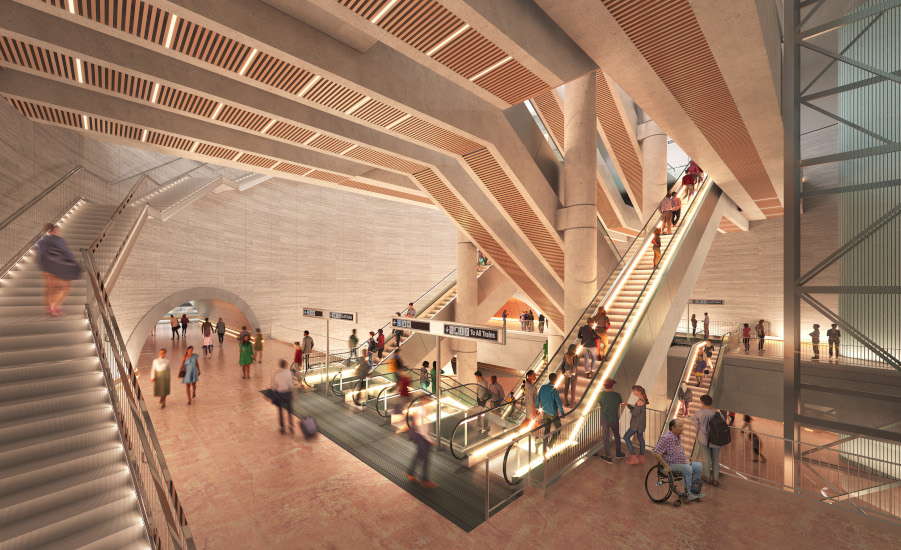Transit
BART Silicon Valley Extension Gets $5B Federal Grant Commitment

Phase II of the BART Silicon Valley Extension would add four stations along 6 miles, most of which would be in a single-bore tunnel.
Rendering courtesy Santa Clara Valley Transportation Authority
Plans for the $12.7-billion BART Silicon Valley Phase II Extension are coming together as Santa Clara Valley Transportation Authority in California announced their selection Aug. 2 for a $5.1-billion grant commitment from the Federal Transit Administration for the project.
The New Starts capital investment grant is the second-largest grant the federal government has offered to date for a transportation project—after a $6.9-billion grant for the Hudson Tunnel Project between New York and New Jersey—said Cindy Chavez, board chair at the Valley Transportation Authority (VTA) and a Santa Clara county supervisor, during a news conference.
“It signals the confidence of the federal government in this important project,” she said.
However, VTA still needs to fill a $700-million funding gap, Chavez said. VTA is freezing new spending for 60 days and looking to renegotiate some existing contracts to help close the gap. The agency will need to find the money for the local share before it can finalize a full funding grant agreement with the Federal Transit Administration.
The project has local funding from sales tax revenue approved by voters via ballot measure, plus the state funding from the Transit and Intercity Rail Capital Program and Bridge Surplus Sharing Revenue, records show.
“It was critical for us to get the federal government’s commitment, because now we know what we have to solve for,” said Tom Maguire, chief megaprojects officer at VTA.
The extension would add 6 miles and four stations in San Jose and Santa Clara, Calif., to the Bay Area Rapid Transit (BART) system, to close its ring around San Francisco Bay. About 5.5 miles of the extension would be a single-bore tunnel, and three of the stations would be underground. The plans also call for a train maintenance site and other facilities.
TVA ordered a 54-ft-dia TBM from Herrenknecht last year to bore the tunnel. Delivery of the TBM is expected next year and tunneling is expected to take between three and four years.
Last month, TVA officials announced it had selected Bechtel Infrastructure Corp. for a $490.8-million construction management services contract. The agency also previously selected Kiewit Shea Traylor joint venture, with Kiewit Infrastructure West, JF Shea Construction and Traylor Brothers, with support from Kiewit Engineering Group and Arup, for the tunnel and track work package.
Other contract packages planned for the project include construction of the maintenance yard, construction of the three underground stations and construction of an above-ground station and parking structure.
The Phase 1 extension project added 10 miles to the line. That phase of work completed in 2020. Early work for Phase 2 started this spring. VTA aims to begin passenger service on the extension in 2037.



